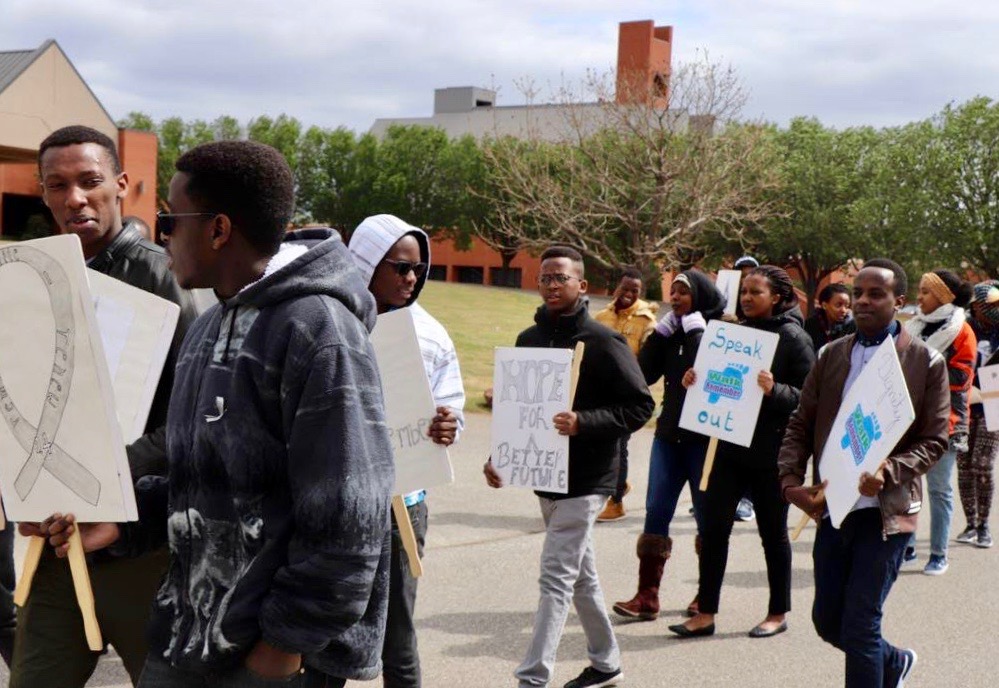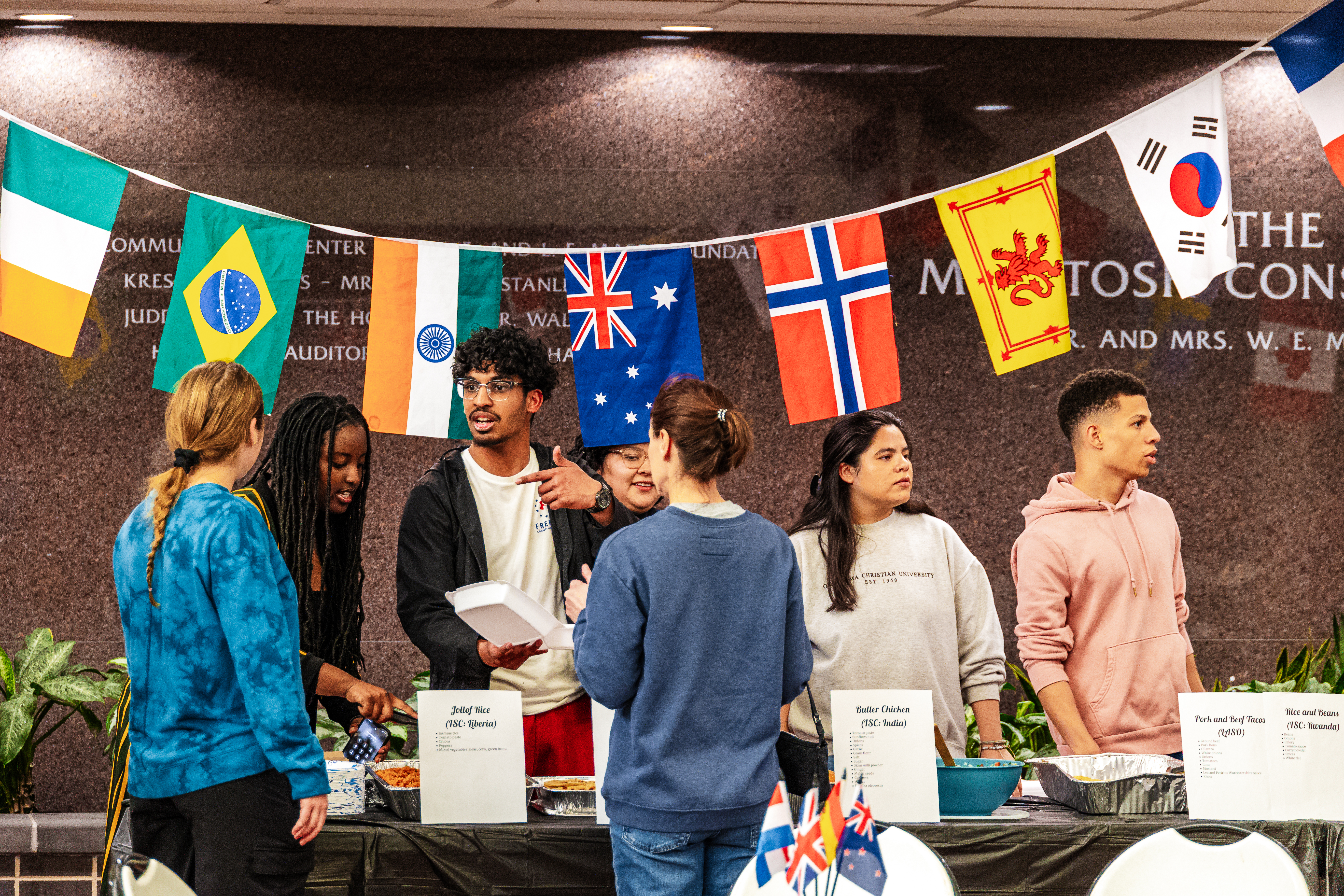Twenty-four years after the Rwandan Genocide resulted in the death of approximately 800,000 Tutsi and Hutu people, Oklahoma Christian University’s Rwandan students held a commemoration Saturday, April 14 to remember the lives lost.
The event included student testimonies and information about Rwanda before and after the genocide and showed how the country has improved since the tragedy.
Junior Amanda Umutoni is president of the African Association on campus and said the theme of the commemoration this year was, “Remember, Unite and Renew.” She said the event each year is an opportunity for Rwandan students to learn more about the genocide, because some people’s families do not like to talk about the topic.
“It is very important for us and our country—it’s a tough period,” Umutoni said. “If you were to go back home, it’s a very mournful place right now, because it’s a tragedy that happened in 1994—it’s been 24 years now. It’s a very important occasion to remember the lives lost and to show some solidarity to the survivors and to unite with them to ensure that it never happens again.”
Umutoni said it is important to remember the genocide, because it gives hope and unity to future generations. She said Rwandans are actively working to forgive one another and live in harmony.
“For the generation that were born after it happened, it’s for them to know more about their country and to learn what happened, so that it can never be repeated again,” Umutoni said. “You need to know your culture—where you come from and where you’re going.”
Junior Prosper Simparingabo said many of his extended family members died during the genocide, and his parents still struggle with the terrible memories. He said his mom found comfort in God as she dealt with the reality of what happened.
“The genocide has impacted everyone,” Simparingabo said. “In my family, both my parents have been impacted. They were refugees for a while when it was happening. They went outside of the country to flee from murderers.”
Simparingabo said society must stay vigilant to prevent future violence, because similar tragedies can happen wherever hate is allowed to grow. He said it is important to not only talk about preventing genocide, but actively work to avoid it. He also said everyone should focus on creating opportunities to unite people instead of divide them.
“[The commemoration] can also teach students that hatred is bad,” Simparingabo said. “The Rwandans were separated before those things happened, so it will help them to make sure there is no separation. You don’t focus on your differences to define yourself—make sure we are not defined by ethnicities.”
Director of Center for Global Missions Ben Langford said he lived in Uganda, which is a country next to Rwanda. He said he visited Rwanda five years after the genocide and saw the memorials for the victims.
“Even though it was five years, it was still very fresh,” Langford said. “We’ve had almost a generation go by now. I’ve visited many of the sites. I’ve been there and kind of walked through that story several times on the ground.”
Langford said by remembering the tragedy, society is encouraging justice and accountability for those who committed the unthinkable acts. He said this approach allows society to heal while still honoring those who lost their lives.
“This way, that justice was served in the sense that yeah, you confessed this and this was wrong, but it was also restorative in the sense that well these people are going to be neighbors still,” Langford. “How are you going to bring a community back together?”
Although remembering the genocide does not bring back those who died, Langford said acknowledging the past helps restore broken relationships in Rwanda. He said the commemoration event allows Oklahoma Christian students to learn about other people and other cultures.
“Rwandan students are very much a part of the OC family, so we bear with one another in those burdens,” Langford said. “We encourage [the commemoration], and for those that do come and participate, it helps us to understand even if the Rwandans here now weren’t alive during the genocide or were very young and don’t remember, they’re still affected by that. They live in a post-genocide world.”














Be First to Comment